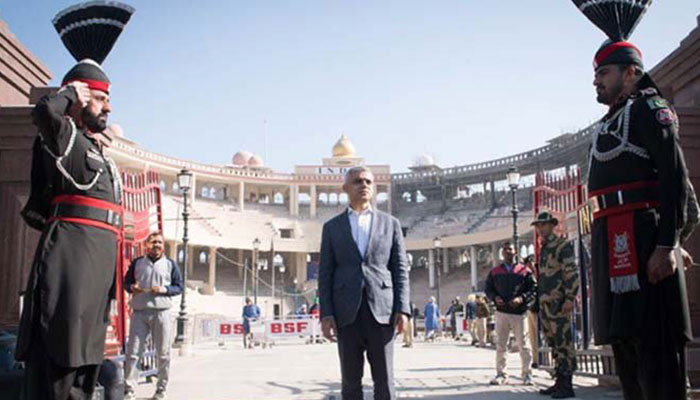Embracing diversity
Mayor Sadiq Khan says his main message on this trip is not only that London is open to new commercial partnerships and business ventures, but it’s also open to new cultural connections and...
December 07, 2017

This week, I make history as the first-ever mayor of London to travel to Pakistan on an official visit. As someone of Pakistani heritage, this trip has a special significance. I am excited at the thought of being able to play my part in strengthening the bonds between both countries and the prospect of forming new and lasting partnerships between London and Pakistan’s great cities.
During my trip, I will be visiting Lahore, Karachi and Islamabad and meeting a host of businesspeople, entrepreneurs, government officials, cultural leaders, civil society members as well as ordinary Pakistanis. I’m passionate about deepening the relationships that we have across a wide range of areas – not just in the fields of business and commerce but across our cultural and creative industries too. Because whether it’s a love of fashion or football, cricket or Coke Studio, I know that we all have so much to gain from greater cultural exchange.
I also know there is a huge amount that we can learn from each other about how we tackle some of the shared challenges we face. By swapping ideas and sharing best practice, as well as insights and expertise, we can address the global problems of air pollution and climate change – and also ensure that our citizens have access to the clean, cheap and reliable sources of energy that we need to power our cities and our homes. Moreover, we can make sure that our citizens are given the infrastructure and the opportunities they need to fulfil their potential and live happy, healthy and prosperous lives.
By working together, we can also speed up innovation and boost economic growth to the benefit of Brits and Pakistanis, Londoners and Lahoris, Cockneys and Karachiites alike. Indeed, Pakistan and the UK already enjoy strong business ties. In 2015, our bilateral trade was worth more than £2.5 billion a year and London is investing more in Pakistan than any other global city apart from Dubai and Beijing. Yet, I believe there is enormous scope to expand these links and increase the levels of trade and investment between us.
Following the Brexit vote, there has been concern expressed in some quarters that my country might be preparing to turn its back on the rest of the world or pull up the drawbridge. I’m here to say that as far as London is concerned nothing could be further from the truth. Our city remains open and the best place in the world to do business. Our underlying strengths – such as our highly-educated workforce, cosmopolitan culture, thriving tech sector, world-class universities and respected legal and financial institutions – remain intact, regardless of the EU referendum result. And, as mayor, I’m doing everything I can to continue London’s long tradition of being open and welcoming to people from around the world who wish to do business in our city.
Unlike other politicians and heads of state who visit Pakistan, I’m not only interested in drumming up new business. I’m also keen to promote London as a destination for Pakistanis to work, visit and study. Last week I had the honour of unveiling a bust of Quaid-e-Azam Muhammad Ali Jinnah with the high commissioner of Pakistan. The founder of Pakistan studied in London where he qualified as a barrister. For centuries, London has been so successful because we’ve been able to attract the brightest and best from around the world, including thousands of talented Pakistanis. Today, 40 percent of London’s population was born outside the UK. So, we value immigration and appreciate its importance to our society, economy and culture.
We also pride ourselves on being one of the most progressive and diverse cities in the world. London is a city that embraces people of all faiths, nationalities and backgrounds. This is clear for all to see, not only from the fact that Londoners elected me – a Muslim – as their mayor, but also from the fact that in the historic location of Trafalgar Square, we celebrate Eid, Vaisakhi, Diwali, Chanukah and many more festivals each year.
So my main message on this trip is not only that London is open to new commercial partnerships and business ventures, but it’s also open to new cultural connections and collaborations, as well as to the Pakistani people themselves – whether you’re a businessperson, an entrepreneur, a student or a tourist.
I know our countries and our cities face many shared challenges but I believe by forging a closer relationship – underpinned by our businesses, culture and people – we can reap the rewards in the years to come and look ahead to a brighter future.
Originally published in The News











